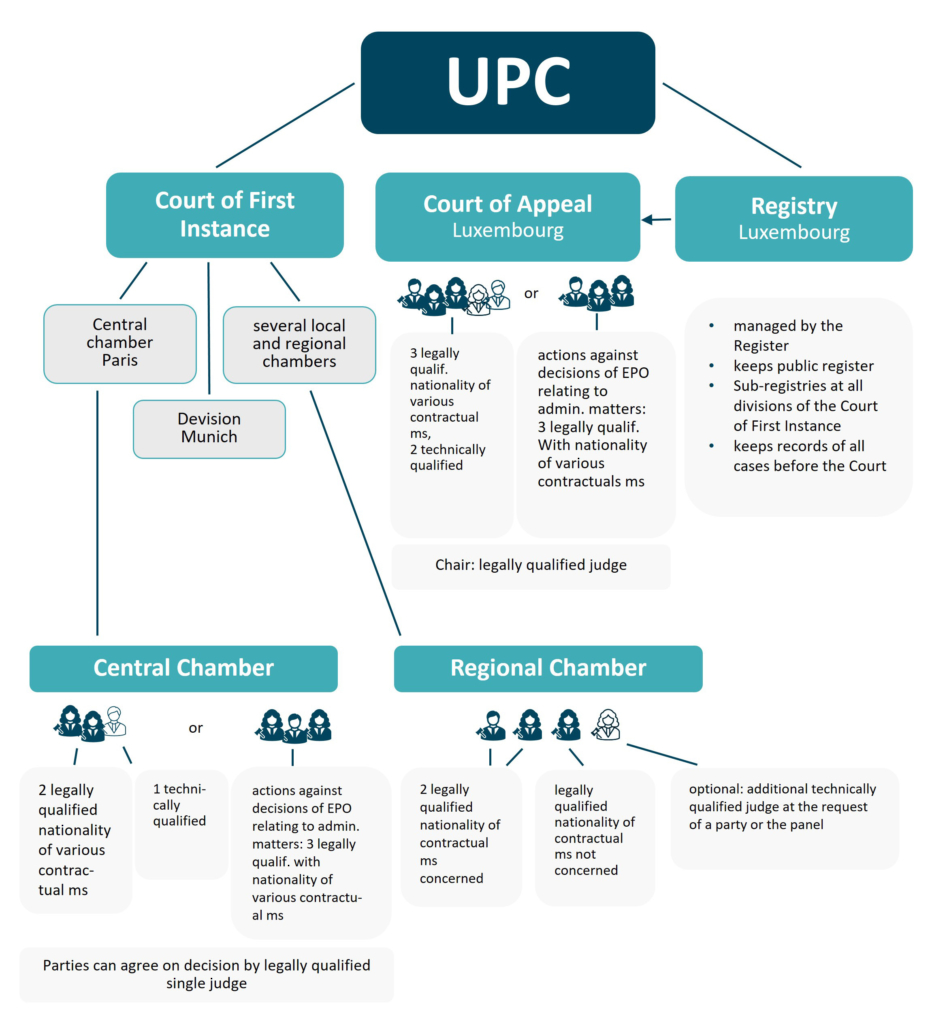Introduction: What is the Unitary Patent System?
The Unitary Patent System comprises, on the one hand, a new European patent with unitary effect in all participating EU Member States, and, on the other hand, a new Unified Patent Court (UPC) which decide on these unitary patents, but ultimately also on all conventional European patents (with national validations, so-called “bundle patents”). After decades of planning, the new system has for the first time created a quasi-EU-wide patent law.
Patent protection in all participating EU countries
The goal of the unitary patent system was to create a more uniform approach to the grant, defence and, in particular, enforcement of European patents in the various EU Member States. The already centralised grant and opposition procedures at the European Patent Office (EPO) will remain unchanged for this purpose. The new system will be complemented by centralised post-grant infringement and revocation procedures.
With the new system, it is possible to file a request for unitary protection at the EPO for each European patent instead of validating the patent individually in several countries. The unitary effect will lead to protection in all participating EU countries and thus to one patent covering 24 EU Member States (all except Spain, Poland and Croatia). Therefore, only one common renewal fee has to be paid to the EPO to maintain protection in all these countries. The unitary patent exists alongside national patents and traditional bundle patents.
Once the patent has been granted by the European Patent Office, the applicant will have the choice of opting for the new unitary patent.
Impacts and transition period
However, it is important to note that the new patent system does not only affect newly granted patents. In addition to the unitary patent, the new Unified Patent Court also has exclusive jurisdiction over all bundle patents (and also supplementary protection certificates, SPCs). Therefore, all validations of existing bundle patents in countries that have ratified the UPC Agreement are also subject to the jurisdiction of the UPC by default.
During the transitional period of at least seven years that is now underway, patent owners can individually exclude their patents from the UPC system by filing a request for exclusion with the UPC. In this case, only the national courts will still have jurisdiction over these patents. Patent owners can also re-enter under certain conditions after they have opted out by withdrawing the opt-out. During the transitional period, patents for which no opt-out has been requested can continue to be litigated before the national courts.
